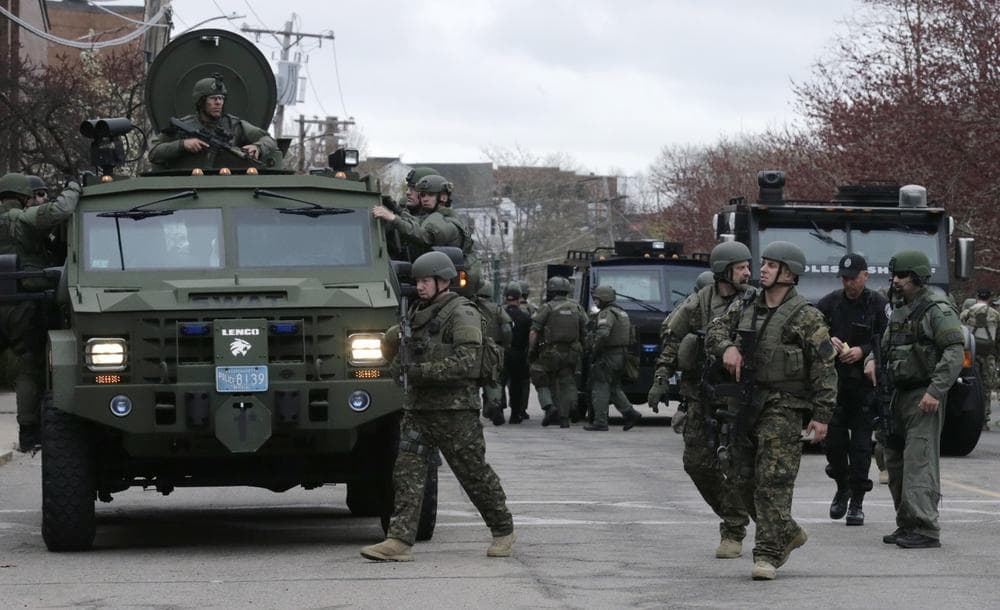Advertisement
Post-Gaming The Manhunt
Resume
The police response to the Boston bombings was without precedent. But was it legal? Was it an overreaction? Was it a textbook case of urban crisis management? We'll dig in.
Guests
Harvey Silverglate, Boston criminal defense and civil liberties litigator
Christine Cole, executive director of the program in Criminal Justice Policy and Management at Harvard Kennedy School. You can read her take here.
More
Huffington Post "Boston — often called the Cradle of Liberty — has often been the scene of political protest, political violence, and heavy-handed government crackdowns — military, paramilitary, and otherwise. As a result, throughout American history the city has been at the center of contentious, often furious debate over how best to balance public safety, crime fighting, and national defense with liberty and individual rights. Indeed, clashes in Boston between citizens and government played prominently into the colonies' decision to fight the American Revolution itself; the dismantling of the Articles of Confederation; adoption of the Second, Third, and Fourth Amendments; the decision to include provisions for a standing army in the U.S. Constitution; the president's authority to deploy soldiers domestically; and both the Posse Comitatus Act and the efforts to dismantle it the modern drug war era."
This segment aired on April 29, 2013.